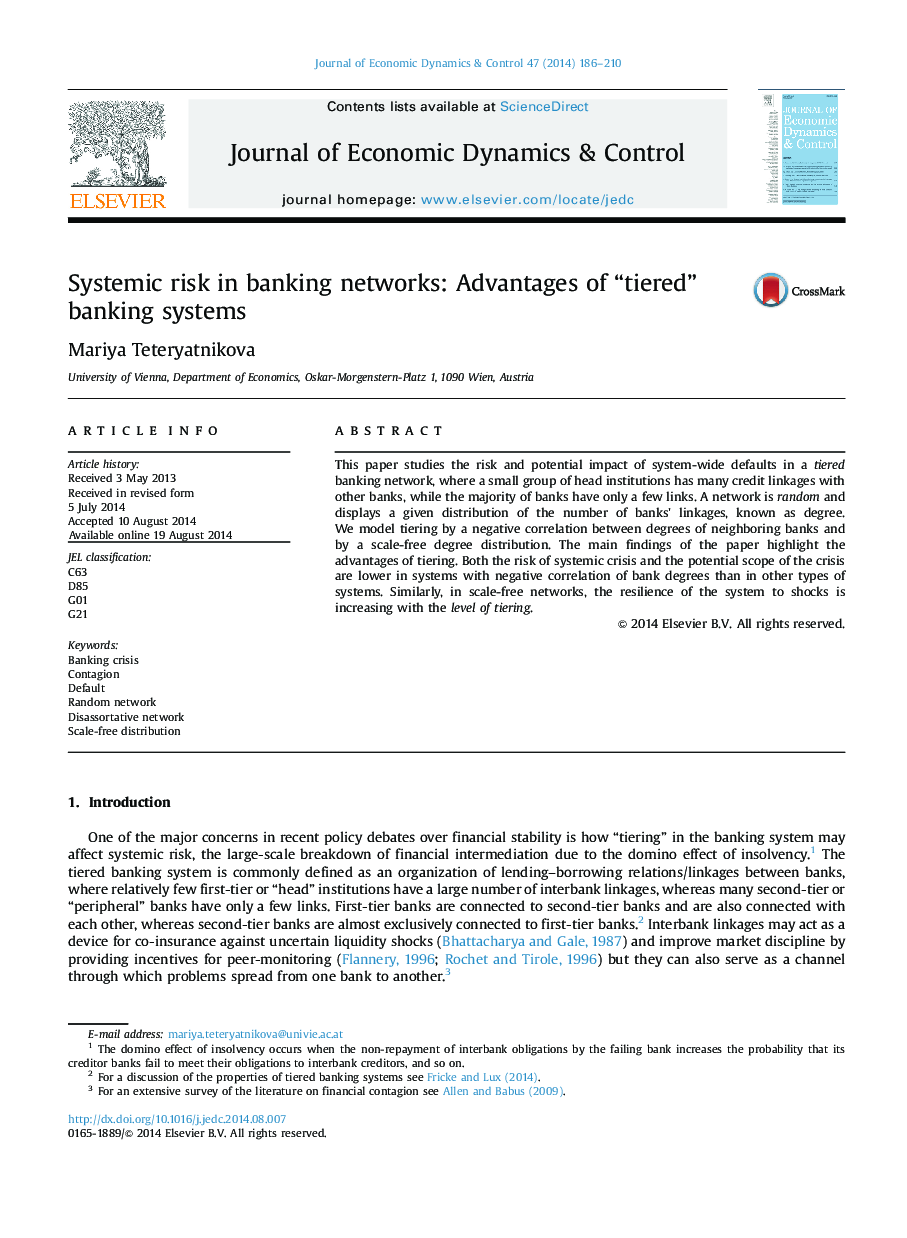| Article ID | Journal | Published Year | Pages | File Type |
|---|---|---|---|---|
| 5098399 | Journal of Economic Dynamics and Control | 2014 | 25 Pages |
Abstract
This paper studies the risk and potential impact of system-wide defaults in a tiered banking network, where a small group of head institutions has many credit linkages with other banks, while the majority of banks have only a few links. A network is random and displays a given distribution of the number of banks׳ linkages, known as degree. We model tiering by a negative correlation between degrees of neighboring banks and by a scale-free degree distribution. The main findings of the paper highlight the advantages of tiering. Both the risk of systemic crisis and the potential scope of the crisis are lower in systems with negative correlation of bank degrees than in other types of systems. Similarly, in scale-free networks, the resilience of the system to shocks is increasing with the level of tiering.
Related Topics
Physical Sciences and Engineering
Mathematics
Control and Optimization
Authors
Mariya Teteryatnikova,
